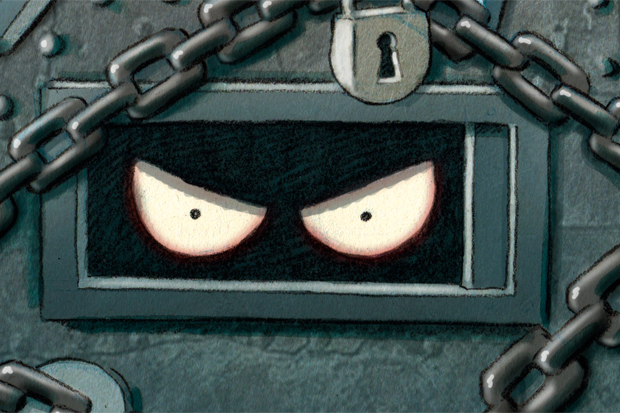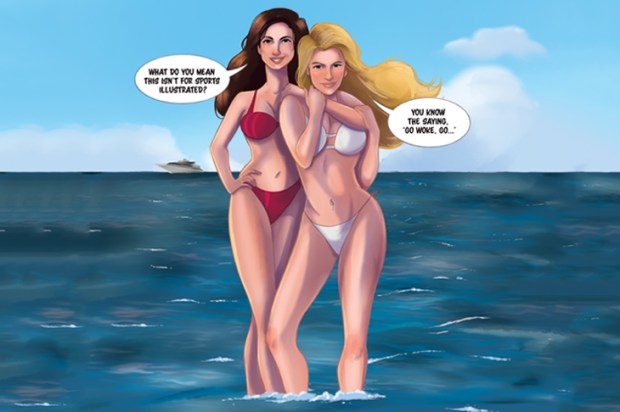Pity the Australian people. In 2007, they elected Kevin Rudd as Prime Minister, a man who billed himself as an ‘economic conservative’ and turned out to be a reincarnation of Gough Whitlam, minus the easy charm. Now they’ve elected the Liberals’ Tony Abbott on the premise that he’d return the country to its pre-Rudd, reformist path. And now Mr Abbott’s team is delivering trade protectionism?
That’s the long and short of federal treasurer Joe Hockey’s recent decision to reject Archer Daniels Midland’s proposed A$3.4 billion takeover of GrainCorp, a company that controls 85 per cent of the bulk grain exported from eastern Australia. ‘Given that the transition towards more robust competition continues and a more competitive network is still emerging, I consider that now is not the right time for a 100 per cent foreign acquisition of this key Australian business,’ Mr Hockey explained.
Now this is a statement worth parsing, starting with ‘I’. I, Joe Hockey. ADM and GrainCorp’s boards had agreed on a sales price after extended negotiations. The Australian Competition and Consumer Commission had extensively vetted and green-lighted the deal. Grain farmers were eagerly anticipating ADM’s infrastructure upgrades. Investors supported the takeover too: GrainCorp’s stock dropped 22 per cent on news of the Hockey rejection. Never mind said I, Joe Hockey.
Then there’s ‘the right time’, which the Treasurer also determines somehow, somewhere and under some sort of logic known only to him. What is the ‘right time’ to transition ADM from Australian ownership to the Yanks? The Brazilians? The Japanese? Or (yes) the Chinese, for that matter? How long might it take for a domestic competitor to gain enough market share to present enough competition to GrainCorp to satisfy Mr Hockey? Would any of us still be alive to witness such an event? Who knows?
Prime Minister Abbott offered this defence: ‘Treasurer Hockey has decided 131 foreign investment applications,’ he told a Brisbane crowd, ‘and 130 of them have been approvals.’ So if you safely land a plane 130 times and crash on the 131st try, is that OK? Will passengers pay to fly on your airline again? Would they fly even for free? Put another way, who in their right mind would invest the time and money to arrange a billion-dollar deal in Australia after ADM’s experience?
Yes, Messrs Abbott and Hockey’s protestations ring hollow given their campaign promise to keep Australia ‘open for business’, made only a few months ago. But they also don’t comport with their loud denunciations of the Rudd government’s windfall mining tax, which they criticised as a deterrent to foreign investment because it sent a negative signal to foreign investors. Are those same investors now expected to trust the Liberals more than Labor, just because?
How short memories are. Countries don’t prosper by adopting a fortress trade policy (see modern-day India) but by embracing foreign competition, foreign capital and foreigners, and setting transparent, predictable laws for all three. The Hawke and Keating governments kicked off a virtuous cycle of innovation, investment and rising prosperity that lasted for three decades. The 1970s weren’t halcyon years — a truth that even the Rudd team, for all its jitters about Chinese foreign investment, recognised.
Yet the overwhelming evidence of free trade’s vast benefits is still news to some of the Liberal party’s coalition partners. ‘I’ve always been concerned that this was a takeover that was going to deliver very little value to the Australian grain industry but would whittle away our capacity as a nation to make decisions about our own food supply chain and our capacity to grow our export markets,’ Deputy Prime Minister and National party MP Warren Truss said of ADM’s bid. Memo to Mr Truss: There’s a global market for food these days. You can buy grain there. And why would shielding ADM from competition ‘protect value’? Oh, never mind.
At its best, the ADM episode smacks of short-term politicking. Mr Hockey said as much when he referred to ‘a high level of concern from stakeholders and the broader community’, by which he means the Nationals and a few country constituents. The generous interpretation is that by giving the Nationals a policy ‘win’, Mr Hockey can count on them to support future economic liberalisation and foreign investment.
Good luck with that. In 2002, then-President George W. Bush imposed a 30 per cent tariff on imported steel in exchange for securing trade promotion authority. The tariffs caused shortages, higher prices for consumers, bleating from US steelmakers for even more protection, lawsuits, trade friction with allies and empowered Democrats to bleat for more union favors. Mr Bush retracted the tariffs in 2003.
Prime Minister Abbott could find himself in the same circumstance, and faster than he thinks. There’s always another goodie that the Nationals will want, or that the union movement will dream up. The Rudd-Gillard government taught special interests that lobbying for favors produces windfalls of taxpayer dollars, regardless of whether or not those dollars are put to their best use. Liberals aren’t immune from such political pressure, no matter what Mr Abbott says.
The more worrying conclusion is that the new Prime Minister doesn’t fully understand the ramifications of his Treasurer’s decision, or is partial to economic engineering so long as it serves his political agenda — as suggested by his willingness to raise taxes to fund his generous parental leave scheme. Then again, Mr Abbott wouldn’t be the first politician to sell Australia on a reformist pitch only to retract it once gaining office.
Got something to add? Join the discussion and comment below.
Get 10 issues for just $10
Subscribe to The Spectator Australia today for the next 10 magazine issues, plus full online access, for just $10.
Mary Kissel is a Wall Street Journal editorial board member and host of Opinion Journal on WSJ Live.
You might disagree with half of it, but you’ll enjoy reading all of it. Try your first month for free, then just $2 a week for the remainder of your first year.














Comments
Don't miss out
Join the conversation with other Spectator Australia readers. Subscribe to leave a comment.
SUBSCRIBEAlready a subscriber? Log in